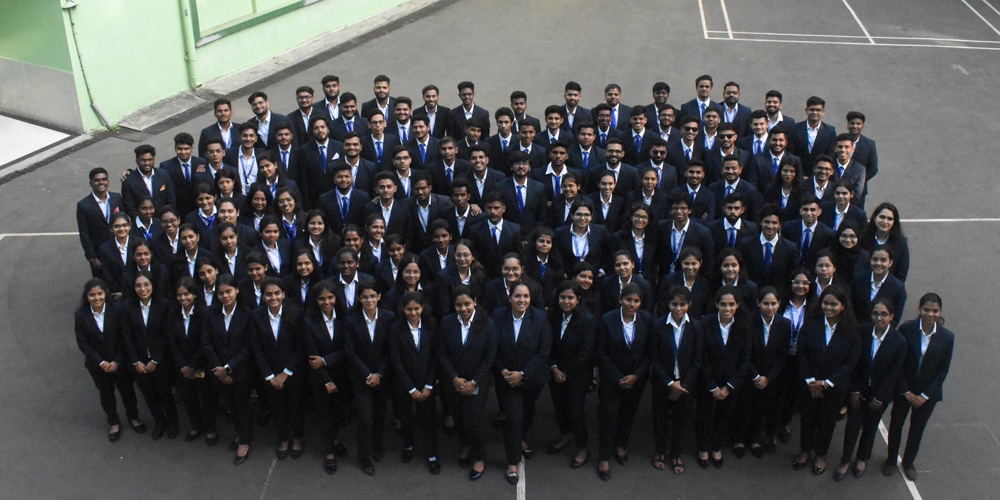
The MMS is a comprehensive Post-Graduate Degree Programme of the University of Mumbai that aims to develop students into innovative thinkers and successful managers. It sharpens their skills to meet the requirements of the Industry.
The course structure perfectly combines conceptual framework and practical insights to tackle business challenges. The MMS Programme is conducted on a semester basis, with four semesters spread over two academic years. In the second year, the students have the choice of specialisation in five areas:
For comprehensive information about the programme, including its start date, details about the summer internship, orientation information and much more, refer to the following PDF for all the relevant details.
1. To impart knowledge of basic and advanced concepts of Business Management and application of their tools and techniques for local and global business practices.
2. To equip the students with techno-managerial skills and entrepreneurial skills to progress as business leaders and entrepreneurs.
3. To instill students on socially acceptable values and business ethics for developing responsible citizens.
| PO1 | Apply knowledge of management theories and practices to solve business problems. |
| PO2 | Foster Analytical and critical thinking abilities for data-based decision-making. |
| PO3 | Ability to develop Value-based Leadership ability. |
| PO4 | Ability to understand, analyse and communicate business’s global, economic, legal, and ethical aspects. |
| PO5 | Ability to lead themselves and others in achieving organisational goals, contributing effectively to a team environment. |
| PO6 | Demonstrate proficiency in modern technology for business applications, research and communication processes. |
| PO7 | Develop competencies and experiential learning to function effectively and as entrepreneurs. |
National Board of Accreditation (NBA) recommends “Rubrics” as an evaluation and assessment tool for attainment level of POs (Programme Outcomes) and Course Outcomes (Cos). A rubric is a scoring guide with criteria for evaluating students’ work in direct relation to one or more of the PO’s and a rating scale indicating differing levels of performance. Rubrics provide clear information to students about what is expected from them enhancing students learning. SFIMAR has adopted rubrics for the Continuous Internal Evaluation (CIE) of the students to achieve the programme outcomes.
Explore the intricacies of the semester-wise syllabus, delve into core subjects, and discover elective options by consulting the attached PDF for a comprehensive overview.
The teaching and learning process comprises interactive classroom lectures, discussions, case studies, projects, assignments, presentations, guest lectures, role plays, treasure hunts, field visits and field projects. Each Student must spend maximum time on self-study and come thoroughly prepared for classes wherein the faculty members act as guides and facilitators. The focus of the teaching and learning process is teamwork.
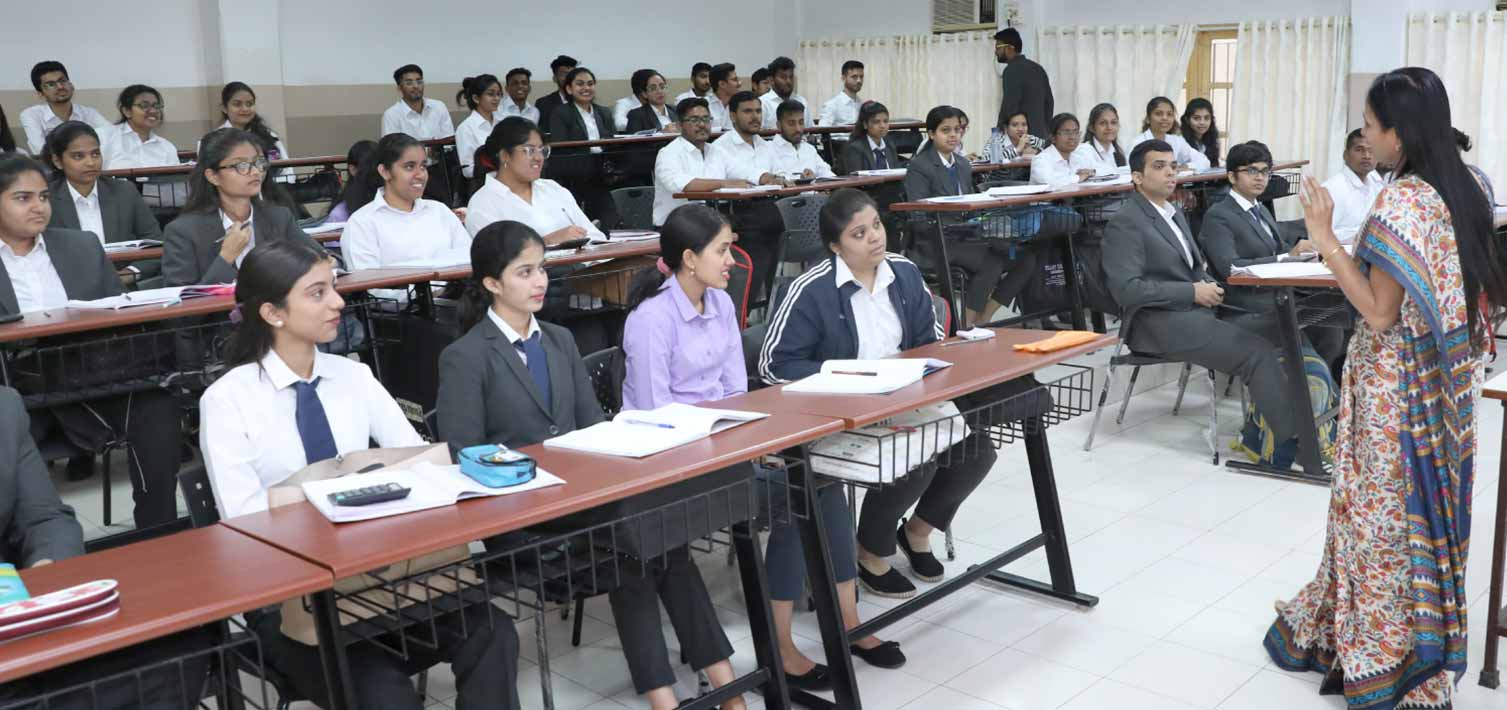
The Institute focuses on the continuous evaluation process. It follows the University prescribed Choice Based Semester Grading System (CBSGS), which mandates that every Student must complete 10 hours of learning to gain 01 credit point. Each subject has 4 credit points, and credit points attainable by a student in two years are 120 credit points. The parameters for evaluation are attendance, class participation, live projects, case study analysis and discussion, online and offline class tests, assignments, projects, presentations and end-term examinations. The students are required to separately pass internal and end-term examinations. The Institute also applies a scaling-down process to ensure that the difference in the percentage of marks scored in the internal assessment and the term-end examination does not exceed 20%.
Attendance is compulsory in all subjects. It should be impressed upon the students by the faculty that they should aim at 100% attendance. Leave of absence can be granted only by /Director/Programme Head on valid grounds of sickness or emergencies with the recommendation of class facilitators.
The students must maintain regular punctuality in the classes. The MMS administration department and the concerned faculty member will maintain a record of attendance.
A minimum of 75% attendance in every subject is required to appear in the examination. The Programme Head will review the attendance status and the defaulters list to be put up by the 8th of every month. All those defaulters will be required to submit an explanation with valid reasons and supporting documentary evidence in case the students require their absence to be regularized. The attendance status will also be given before the Examination and Attendance Committee meetings, which take place at regular intervals.
A student failing to have a minimum 75% attendance for lectures and all other academic activities can also result in being debarred from the examination.
Projects are designed to ignite the intellectual and innovative abilities of students. It allows students to synthesise and apply the knowledge and analytical skills learned in the different disciplines. While undertaking the project, the Student must use the Faculty’s help to define its relevance, rationale, aim and objective, method to be followed, and learning outcomes.
Evaluation of the project will be based on the achievement of the parameters mentioned above. The project can be dynamic or static (either field-based- connected to industry/ corporate/ institutions or research-based).
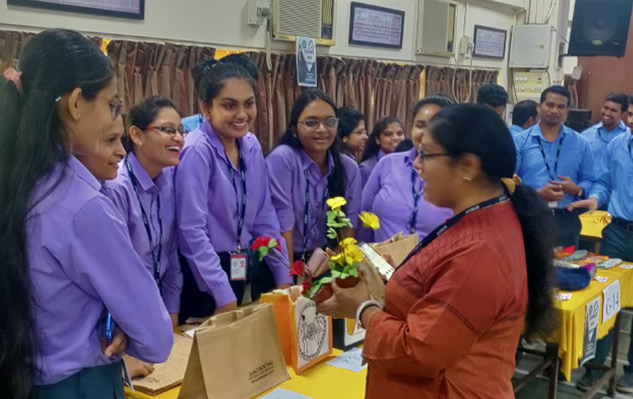
AIMA Bizlab is a virtual business laboratory designed for management graduates to offer them hands on experience on management concepts and make them industry ready. Teaching and training students to become successful future business leaders is a key objective. SFIMAR along with AIMA thus provided students real world business experience to prepare them for the demands of business management.
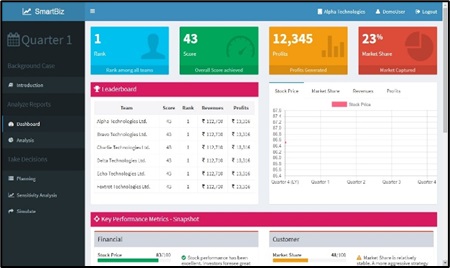
Group Discussion”, popularly labelled as GD, is an organisation’s methodology (company, Institute, business school, etc.) to gauge whether the candidate has certain personality traits. GDs form an important part of the short-listing process for recruitment or admission in a company or institution.
At SFIMAR, GD sessions are regularly integrated into the schedule weekly. Each Student is evaluated on a standardised parameter, with monthly scores. The top three performers are awarded certificates of appreciation during common functions such as Annual Day/Induction Day, etc.
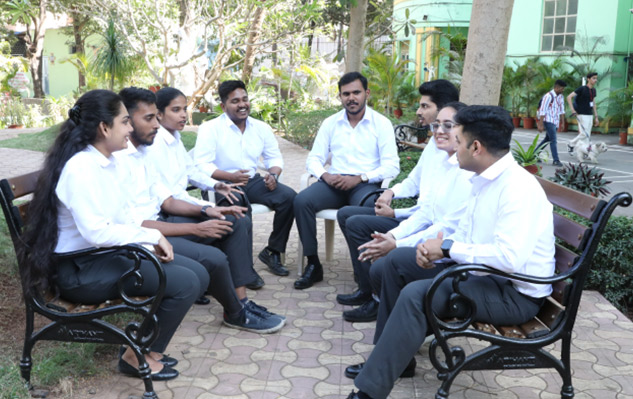
To supplement the day-to-day learning, guest sessions by Industry experts are organised on specific semester subjects on Saturdays. The onus of organising the guest lecture rests on the subject faculty member who identifies the resource person and the topic of discussion.
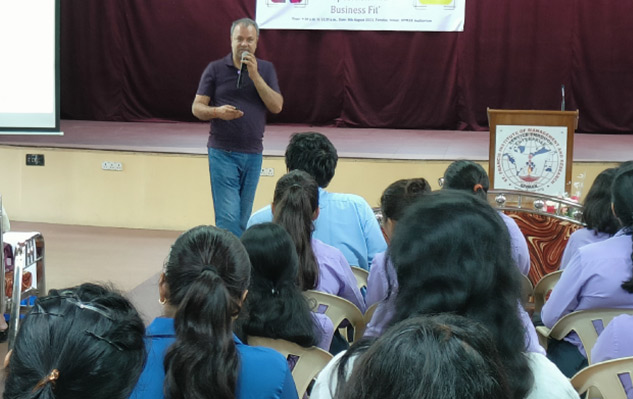
To sharpen the understanding of the subject knowledge and strengthen the concepts, every subject faculty member conducts a viva twice a semester. The performance of viva is evaluated and integrated into the internal assessment of the subject.
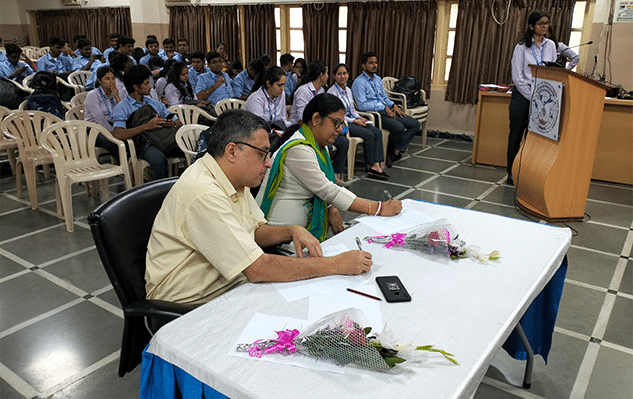
SFIMAR consistently upholds a commitment to excellence, evident in the exceptional results achieved by our students year after year, a testament to the quality of education we provide.

Karina Patil
CGPI 9.83

Amit Pathare
CGPI 9.76

Drashti Darji
CGPI 9.59
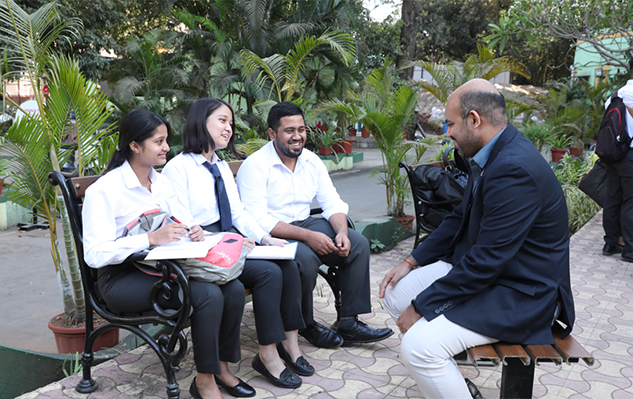
Objective: At our institution, we believe in equipping our students with the skills necessary to thrive in a world where the physical, digital, and virtual realms converge to create intelligent environments. Our workshops are designed to cultivate expertise in various areas, some of which are actively developed by our students. SFIMAR provides comprehensive training in concepts and techniques, ranging from data analytics, essential for building a strong foundation in business intelligence, to hands-on tools and techniques that enhance students' practical skills, making them highly employable. Additionally, our interactive sessions on values, ethics, business etiquette, counselling, and leadership aim to enhance students' personalities and prepare them for success in their chosen fields.
Our 'Add-On Programs' serve as a distinguishing feature from traditional university-based curricula. These programs involve 20 hours of interactive conceptual learning and 10 hours of hands-on practical training, fostering an experiential learning environment for SFIMAR students. Our goal is to prepare them to face the challenges of the corporate world with confidence and competence.
Our Add-On Programs encompass a wide array of offerings, including:
At SFIMAR, students from diverse regions converge to create a meaningful impact. What unites them is their shared mindset, driven by a common goal—to make a difference on a broader scale that goes beyond geographical boundaries.